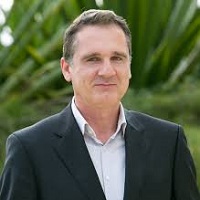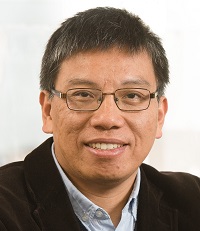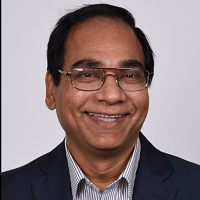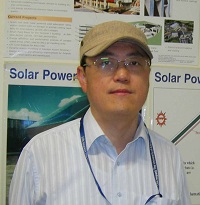
Prof Vladimir Strezov is professor in environmental science at the School of Natural Sciences, Faculty of Science and Engineering at Macquarie University. He holds degrees in Mechanical and Chemical Engineering with expertise in renewable energy, environmental assessment, air and water quality, and sustainable development. He has published 6 scholarly books and over 300 publications. Prof Strezov is a Fellow of the Institution of Engineers Australia, and Fellow of the Australian Institute of Energy.
Speech Title: Biomass integration in sustainable energy transformation and circular economy frameworks
Abstract: Biomass and wastes are one of the fastest growing energy production sources with significant potential to contribute to regional circular economy. Biomass can readily substitute for the use of coal in the established energy production systems with minor technological adoptions. However, energy production from biomass is still facing many challenges with sustainable resourcing of the biomass materials and efficient conversion to biofuel products. This presentation will discuss the challenges and opportunities for the application of biomass in designing systems of engineering solutions for sustainable energy use and production of renewable biofuels. The opportunities for the use of biomass sources in solving a range of environmental problems will also be discussed.

Professor Zhibin Yu currently holds the Chair of Energy Engineering in the Department of Mechanical and Aerospace Engineering at the University of Liverpool. He leads the Energy Research Cluster within the School of Engineering and holds a prestigious Royal Society Industrial Fellowship (2023–2027). Prior to this, he held academic positions at the James Watt School of Engineering, University of Glasgow: Lecturer (2012–2017), Senior Lecturer (2017–2019), and Professor of Thermal Energy (2019–2023). His research focuses on thermal energy technologies, with particular interest in the underlying thermodynamic, heat transfer, and fluid-dynamic challenges. He is committed to developing innovative solutions for sustainable heating, cooling, and power generation, with expertise spanning heat pumps, refrigeration, energy storage, district heating and cooling networks, organic Rankine cycle systems, and thermoacoustics. Professor Yu has led or contributed to over 35 research projects with a combined value exceeding £30 million, funded by EPSRC, Innovate UK, and the European Commission. He has published more than 180 research papers and is the inventor of the Flexible Heat Pump Cycle (PCT reference: WO2022069581A1), a technology that enables the next generation of high-efficiency, flexible heat pumps. He currently serves as Associate Editor for Applied Energy (Elsevier) and npj Thermal Science and Engineering (Springer Nature), Subject Editor for Applied Thermal Engineering (Elsevier), and Section Editor-in-Chief for Frontiers in Thermal Engineering. He also sits on the editorial boards of Energy Reports (Elsevier) and the International Journal of Green Energy (Taylor & Francis). Professor Yu is a Board Director of the International Association for Green Energy, and he served as Chair of the 15th International Green Energy Conference, hosted at the University of Glasgow.
Speech Title: The Flexible Heat Pump Technology: Enhanced Efficiency and Broad Applications
Abstract: Heat pumps are widely recognised as a key technology for decarbonising heat and achieving net-zero emissions. However, their adoption has been slower than expected. Most commercial heat pumps are based on the conventional Evans-Perkins vapour compression cycle, originally developed for refrigeration. As the temperature lift between the heat source and sink increases, the coefficient of performance (COP) of single-stage heat pumps drops significantly—primarily due to throttling losses, which scale with the square of the temperature lift. To enable widespread deployment, further innovation is needed to improve both the performance and cost-effectiveness of heat pump systems. In this talk, Professor Yu will present an up-to-date overview of recent research advances in heat pump technologies, followed by a discussion of the key challenges and emerging opportunities in the field. He will then introduce his work on the invention and development of Flexible Heat Pump technology, which integrates thermal energy storage into the conventional Evans-Perkins cycle. This approach enables the recovery, storage, and reuse of thermal energy from the warm liquid refrigerant leaving the condenser. Thermodynamically, it resembles a two-stage vapour compression cycle with subcooling and flash gas removal—offering an innovative solution to the persistent issue of throttling losses in high-temperature applications. The integration of in-cycle heat recovery and storage opens up a wide range of new applications, delivering substantial energy savings and enhanced operational flexibility.

MOHAMMAD RASUL obtained his PhD in Clean Energy from The University of Queensland (Australia). Currently, he is a Professor of Mechanical Engineering at the School of Engineering and Technology, Central Queensland University (CQUniversity). He is the recipient of Vice-Chancellor and Dean’s awards for outstanding researchers in the excellence in research category, and awards for research higher degree supervision and good practice in learning and teaching. Professor Rasul is specialised in clean energy. He has over 20 years of research experience in clean energy including pyrolysis, waste-to-energy, and energy and emission analysis for sustainable development. He has made significant contributions in research with over 550 publications, >23,500 citations and H-Index of 75. He has secured over $7M research grants, supervised 41 Research Higher Degree (PhD/Masters) students to completion. He is in the top 2% researchers and number 5 among the highly ranked scholars in the world in Biofuels/Biodiesel research which is within top 0.05% researchers in this area. He is best scientist in the world standing at 1541 in world ranking and 91 in the country (Australia) ranking in the field of Engineering and Technology. He is ranked 815 out of 313,936 (0.26%) researchers in the ENERGY sub-category in the world. He is recognised, both nationally and internationally, through his varied roles and activities, for example, editor of the Australian Journal of Mechanical Engineering, section editor of Encyclopedia of Renewable Energy, Sustainability and The Environment (Elsevier), editorial board member of several and technical and scientific committee member of a couple of dozen conferences. He frequently creates attention of media and community engagement through his expert opinion and interview by different media, such as ABC 7 TV, ABC 7 News, ABC Tropical North, ABC Capricornia FM, Morning Bulletin and News Mail.
Speech Title: Hydrogen Production from Syngas Produced through Pyrolysis of Waste Plastics
Abstract: Globally plastic production has increased from less than 2 million tons in 1950 to 380 million tons annually today. More than 75% of these plastics are rejected as waste in the environment and end up in landfills or are incinerated, releasing toxic gases to the environment, soil and groundwater. Several Waste to Hydrogen technologies have been evaluated for their techno-economic and environmental impacts assessment to treat waste plastics, pyrolysis process is one of them. Pyrolysis is a well-established thermochemical conversion process that converts waste into energy products such as oil, char and syngas by decomposing them at high temperatures (350°C-600°C) in the absence of oxygen. As global demand of hydrogen rises from 70 to 120 million tons in 2024, a cleaner energy source, can be produced from waste plastic via pyrolysis and Palladium membrane (Pd-membrane) separation process of syngas. This presentation will talk about how to produce pure hydrogen from syngas produced through waste plastic pyrolysis, pyrolysis results of different waste plastics and hydrogen separation efficiency from syngas.

Dr. Eric Hu received his basic professional degree of Bachelor of Engineering (Mechanical) from the Zhejiang University, China in 1984. He was majored in thermal power station technologies. After graduation, he proceeded to Beijing Solar Energy Research Institute for the degree of Master of Engineering (energy technology). Two and a half years later, he started work with the same institute as a research engineer for another three years. In January 1990, Eric was granted a French government scholarship to undertake the Doctor of Engineering program in Energy Technology Division at the Asian Institute of Technology in Bangkok Thailand. He obtained the doctoral degree (D.Eng in Energy Technology) and came to Australia at the end of 1992. Eric worked as a lecturer and senior lecturer in Thermodynamics and Fluid Mechanics at Gippsland School of Engineering, Monash University until 1999 when he joined the School of Engineering and Technology at Deakin University. He was promoted to Associate Professor in 2005 at Deakin University. He starts with the School of Mechanical Engineering at the University of Adelaide, as Associate Professor in Sustainable Energy Engineering, in Feb 2009. Dr. Eric Hu has been working in sustainable energy engineering areas, including energy efficiencies for industrial process, solar thermal applications eg. heating, cooling and power generation, CO2 emission reduction for power stations and low energy desalination etc. He has published over 300 academic papers with H-index of 49 and over 8400 citations.
Speech Title: Solar Aided Power Generation (SAPG)
Abstract: Fossil fuel based power generation is and will still be the back bone of our world economy, albeit such form of power generation significantly contributes to global CO2 emissions. Solar energy is a clean, environmental friendly energy source for power generation, however solar photovoltaic electricity generation is not practical for large commercial scales due to its cost and high-tech nature. Solar thermal is another way to use solar energy to generate power. Many attempts to establish solar (solo) thermal power stations have been practiced all over the world. Although there are some advantages in solo solar thermal power systems, the efficiencies and costs of these systems are not so attractive. Alternately by modifying, if possible, the existing coal-fired power stations to generate green sustainable power, a much more efficient means of power generation can be reached. This paper presents the concept of solar aided power generation in conventional coal-fired power stations, i.e., integrating solar (thermal) energy into conventional fossil fuelled power generation cycles (termed as solar aided thermal power). The solar aided power generation (SAPG) concept has technically been derived to use the strong points of the two technologies (traditional regenerative Rankine cycle with relatively higher efficiency and solar heating at relatively low temperature range). The SAPG does not only contribute to increase the efficiencies of the conventional power station and reduce its emission of the greenhouse gases, but also provides a better way to use solar heat to generate the power. This paper presents the advantages of the SAPG at conceptual level. In this talk, the R&D of the SAPG carried out by Eric’s teams in past will be summarised and reported.